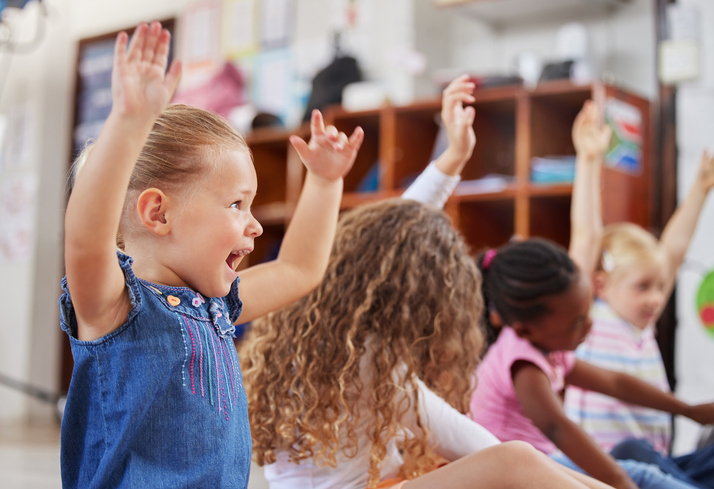From making friends to managing big emotions, the early years are a vital time for children to develop the skills they need to thrive socially and emotionally. While literacy and numeracy are often in the spotlight, social-emotional learning (SEL) plays an equally important role in any program for early childhood education. It’s these skills, like empathy, resilience, and cooperation that form the foundation for lifelong learning and well-being.
What Is Social-Emotional Learning?
Social-emotional learning is the process through which children learn to understand and manage emotions, build positive relationships, and make responsible decisions. It includes five core areas:
- Self-awareness: recognising one’s emotions, values, and strengths
- Self-management: managing emotions, behaviours, and setting goals
- Social awareness: showing empathy and understanding diverse perspectives
- Relationship skills: developing communication, teamwork, and conflict resolution skills
- Responsible decision-making: making thoughtful choices based on safety, ethics, and social norms
These competencies help children navigate everyday experiences, from resolving playground conflicts to adapting to new environments. Research shows that strong social-emotional skills in early childhood are linked to better academic outcomes, improved mental health, and stronger interpersonal relationships later in life.
Why SEL Matters in the Early Years
Early childhood is a period of rapid brain development. During this time, children begin forming their sense of identity, learning how to interpret social cues, and understanding how their actions affect others. Fostering SEL from the start helps build the emotional literacy children need to handle stress, connect with peers, and confidently explore their world.
In fact, studies have shown that children who participate in early learning programs with a strong SEL component tend to show more positive classroom behaviour, have fewer behavioural issues, and demonstrate greater readiness for primary school.
For parents and educators, focusing on SEL from the outset means supporting a child’s emotional growth alongside their cognitive development, leading to more confident, empathetic, and resilient individuals.
How Early Learning Programs Foster Social-Emotional Skills
High-quality programs for early childhood education in Australia are increasingly integrating SEL into their everyday activities. Through play, storytelling, music, movement, and group projects, children are encouraged to explore their emotions, build friendships, and practice cooperation in safe, supportive environments
At hey dee ho, our early learning program is thoughtfully designed to promote social and emotional development through interactive, creative experiences. We believe education is most effective when it’s joyful, engaging, and holistic.
Some of the ways we support SEL include:
- Music and rhythm-based activities that teach turn-taking, cooperation, and emotional expression
- Drama and storytelling to encourage empathy, perspective-taking, and imaginative role-play
- Yoga and mindfulness for emotional regulation, body awareness, and calming techniques
- Fitness sessions that support teamwork, communication, and confidence through movement
These activities aren’t just fun, they’re powerful tools that help children understand themselves and relate more meaningfully to others.
Supporting SEL at Home and in the Classroom
For social-emotional learning to be truly effective, children need consistent messages and modelling across environments. That means collaboration between educators and families is essential.
Here are some simple ways to support SEL outside the classroom:
- Talk openly about feelings and help children name their emotions
- Encourage problem-solving instead of simply fixing challenges for them
- Read books together that explore themes like kindness, empathy, and courage
- Create calm-down corners or simple rituals to help children self-soothe — co-regulation, where a calm adult supports a child through big feelings, helps build the foundation for self-regulation.
- Model behaviours like active listening, compromise, and respectful communication
When children see these skills in action, both at home and in their early learning environments, they’re more likely to internalise and practice them in their own lives.
Building Strong Foundations for Life
Social-emotional learning isn’t a one-off lesson, it’s a lifelong journey that begins in the early years. By giving children the tools to understand themselves and connect with others, we help them build a strong emotional foundation for future relationships, learning, and well-being.
We believe every child deserves the chance to grow in a nurturing, creative environment. Our interactive early learning programs combine music, drama, fitness, and yoga to support not just cognitive development, but emotional and social growth as well.
Nurture your child’s social and emotional development through hey dee ho’s interactive programs. Our music, yoga, fitness, and drama sessions are crafted to enhance emotional intelligence and social skills. Find out how our programs can support your child’s growth. Discover our programs today.


